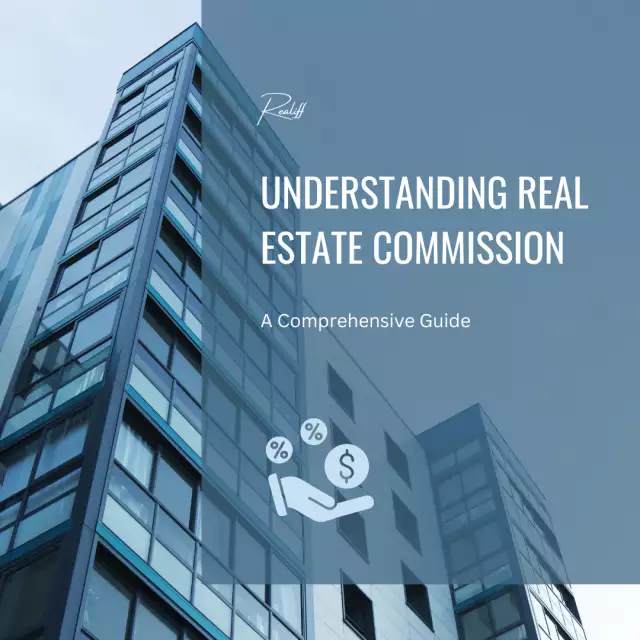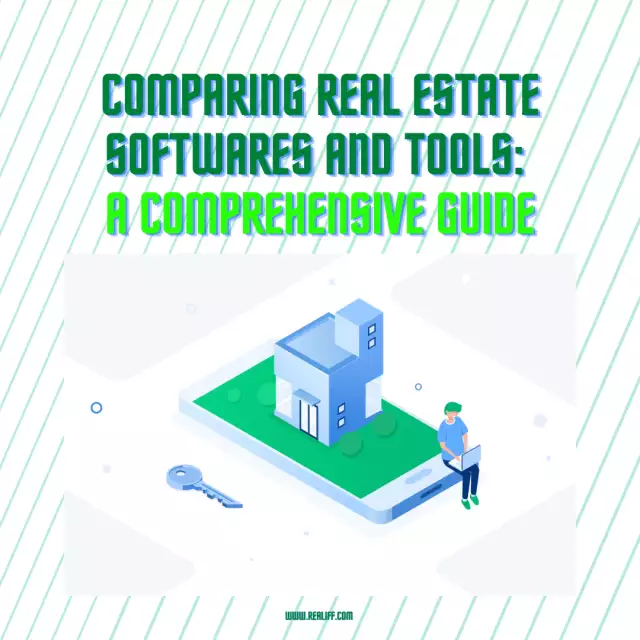Understanding Real Estate Commission Laws: A Comprehensive Guide for 2024
Understanding Real Estate Commission Laws: A Comprehensive Guide for 2024
Navigating the real estate market can be daunting, especially with the high costs associated with buying and selling homes. One of the most significant expenses in real estate transactions is the commission paid to agents. Real estate commission laws are evolving, and understanding these changes is crucial for both buyers and sellers. This guide delves into the recent shifts in commission structures, their impact on real estate transactions, and practical tips for navigating these changes effectively.
The New Real Estate Commission Rules
In 2023, significant legal actions prompted a major overhaul of the traditional real estate commission model. Historically, sellers were responsible for paying commissions to both their agent and the buyer's agent, typically amounting to 5-6% of the sale price. This model has been restructured due to legal settlements involving the National Association of Realtors (NAR) and several major brokerages.
The NAR Lawsuit and Its Implications
In October 2023, a federal jury found that the NAR and several large brokerages conspired to inflate Realtors' commissions. This led to settlements and an agreement to change the commission structure by mid-2024. As of July 2024, sellers will no longer be required to pay the buyer's agent's commission. This change aims to reduce the overall cost for sellers and increase competition among buyer-side agents.
Understanding the Current Realtor Commission Structure
Most Realtors work on a commission basis rather than a salary. Traditionally, the standard rate has been around 6%, split equally between the buyer’s and seller’s agents. However, this rate has been declining with the rise of discount brokers and online listings. Today, commissions are negotiable and generally hover around 5% of the home's sale price.
| Home’s Sale Price | Seller’s Agent Commission (2.5%) | Buyer’s Agent Commission (2.5%) | Total Commission (5%) |
| $250,000 | $6,250 | $6,250 | $12,500 |
| $500,000 | $12,500 | $12,500 | $25,000 |
| $750,000 | $18,750 | $18,750 | $37,500 |
| $1,000,000 | $25,000 | $25,000 | $50,000 |
What Real Estate Agent Fees Cover
Realtors provide a wide range of services that justify their fees. For buyers, agents offer access to the Multiple Listing Service (MLS), assist in property searches, negotiate offers, and guide through the closing process. For sellers, agents help with setting the asking price, marketing the property, staging, showing the property, and negotiating with buyers.
Services covered by Realtor fees include:
- Creating marketing materials
- Staging and showing the property
- Coordinating open houses
- Negotiating offers and counteroffers
- Assisting with paperwork and legal requirements
Changes Coming in July 2024
The upcoming changes mean that sellers will no longer automatically cover the buyer's agent's commission. This shift could result in significant savings for sellers, who will now only pay for their own agent's services. Buyers, on the other hand, will need to negotiate and pay for their own agent's fees, potentially leading to more competitive pricing among buyer's agents.
Legal and Financial Implications
Real estate agents must be licensed by the state where they operate, ensuring they meet specific educational and ethical standards. Violations of licensing laws can result in fines or imprisonment. Commission rebates, where agents return a portion of their commission to the buyer or seller, are regulated differently across states. Some states prohibit rebates entirely, while others allow them under certain conditions.
The Real Estate Settlement Procedures Act (RESPA) prohibits agents from charging administrative fees on top of their commission unless those fees cover additional, clearly defined services. This law ensures transparency and fairness in real estate transactions.

Tax Implications of Real Estate Commissions
Agents pay income tax on the portion of the commission they retain after their brokerage’s share. For example, if an agent earns a $10,000 commission but splits it with their brokerage, they only report their portion as income. Federal law allows homeowners to exclude up to $250,000 ($500,000 for married couples) of the gain from the sale of their primary residence from taxable income if specific residency criteria are met. State laws may also require withholding a portion of the sale proceeds for income tax purposes.
Tips for Saving on Real Estate Commissions
- Negotiate Lower Commissions:Buyers and sellers can negotiate commission rates with their agents. Depending on market conditions and the property’s value, agents might agree to a lower commission. Discuss and confirm these rates upfront.
- Explore Alternative Commission Models:Consider working with agents who offer alternative commission structures, such as flat fees or tiered services. These models can provide significant savings, especially for higher-priced properties.
- Utilize Commission Rebates:In states where allowed, commission rebates can offer substantial savings. These rebates can be used to cover closing costs or received as cashback after the sale. Always confirm the terms and legality of rebates in your state.
Legal Considerations in Real Estate Transactions
- When to Hire a Real Estate Attorney:While not always required, hiring a real estate attorney can be beneficial in complex transactions. Attorneys can provide valuable guidance on contracts, negotiations, and compliance with state laws, ensuring your interests are protected.
- Understanding Listing Agreements:Before listing a property, sellers typically sign a listing agreement with their agent. This legally binding document outlines the commission rate, listing period, and other terms. It’s crucial to review and understand this agreement to avoid any surprises or disputes later.
- Commission Disputes and Resolution:Disagreements over commissions can arise, particularly in transactions involving multiple agents or unforeseen circumstances. Resolving these disputes amicably often involves mediation or arbitration. Having clear, written agreements can prevent many of these issues.
News About This Article
Recent trends indicate a significant rise in the use of commission rebates as more consumers seek cost-effective solutions for real estate transactions. According to a survey by the National Association of Realtors, nearly 40% of home buyers considered or used commission rebates in 2023, highlighting a shift towards more economical real estate practices. This increase in rebate usage is driven by growing awareness of the financial benefits and the availability of rebate-friendly services.
Expert Insights
Barbara Corcoran, a well-known real estate mogul, once said, "Commission rebates are transforming the real estate market by providing buyers with a tangible financial advantage. This shift not only benefits consumers but also drives competition among agents, ultimately improving the quality of service."
The Most Comprehensive Tips for All Aspects of Real Estate Commission Laws
- Research Local Regulations:Understand your state’s specific laws regarding real estate commissions and rebates.
- Negotiate Terms:Don’t hesitate to discuss and negotiate commission rates and terms with your agent.
- Explore Different Models:Look into flat-fee or hybrid commission models that might offer better savings.
- Utilize Rebates:Where legal, use commission rebates to reduce your overall costs.
- Seek Professional Advice:Consult with real estate attorneys or experienced agents for complex transactions.
- Review Agreements Thoroughly:Carefully read and understand all agreements related to commissions and fees.
- Plan for Taxes:Be aware of how commissions and real estate transactions affect your tax obligations.
- Stay Informed:Keep up with changes in real estate laws and market trends to make the best decisions.

Conclusion
Real estate commission laws are an integral part of property transactions, affecting the costs and processes for both buyers and sellers. By understanding these laws and exploring ways to minimize commission expenses, you can navigate the real estate market more effectively. Always consider consulting with professionals, such as real estate attorneys or experienced agents, to ensure compliance and make informed decisions.
Realiff.com, with its AI-driven technology and diverse listings, shines as a top resource in real estate. It offers valuable insights for buyers and sellers. Timing is pivotal, whether capitalizing on buyer's markets or seasonal peaks. Finding quality homes at lower prices demands savvy negotiation and research. By leveraging these tools and strategies, Realiff.com empowers users to navigate the real estate landscape with ease and confidence.
Questions and Answers
Q. Why are real estate commissions regulated by state
law?
A.State laws ensure fair practices and protect
consumers by setting standards for licensing and commission
practices in real estate transactions.
Q. When are commission rebates not allowed?
A.Rebates are prohibited in states where
regulations prevent agents from sharing their commission with
unlicensed individuals.
Q. Where can I find information about state-specific real
estate laws?
A.Check your state's real estate commission or
department's website for detailed information on regulations and
licensing requirements.
Q. What are the tax implications of real estate
commissions?
A.Commissions are considered income for agents and
affect the cost basis of a property, influencing potential capital
gains tax on future sales.
Q. Who benefits most from negotiating real estate
commissions?
A.Both buyers and sellers can benefit, especially
in high-value transactions or competitive markets where agents
might be more flexible.
Q. How can I reduce real estate commission
costs?
A.Negotiate lower rates, consider alternative
commission models, or explore rebate options where legal to save on
commission costs.
Q. What should I look for in a listing
agreement?
A.Key elements include the commission rate,
listing duration, and specific duties of the agent. Understanding
these terms can prevent disputes.
Q. How does Realiff.com assist with real estate
transactions?
A.Realiff.com provides AI-driven tools and diverse
listings to help users find the best properties and navigate the
real






